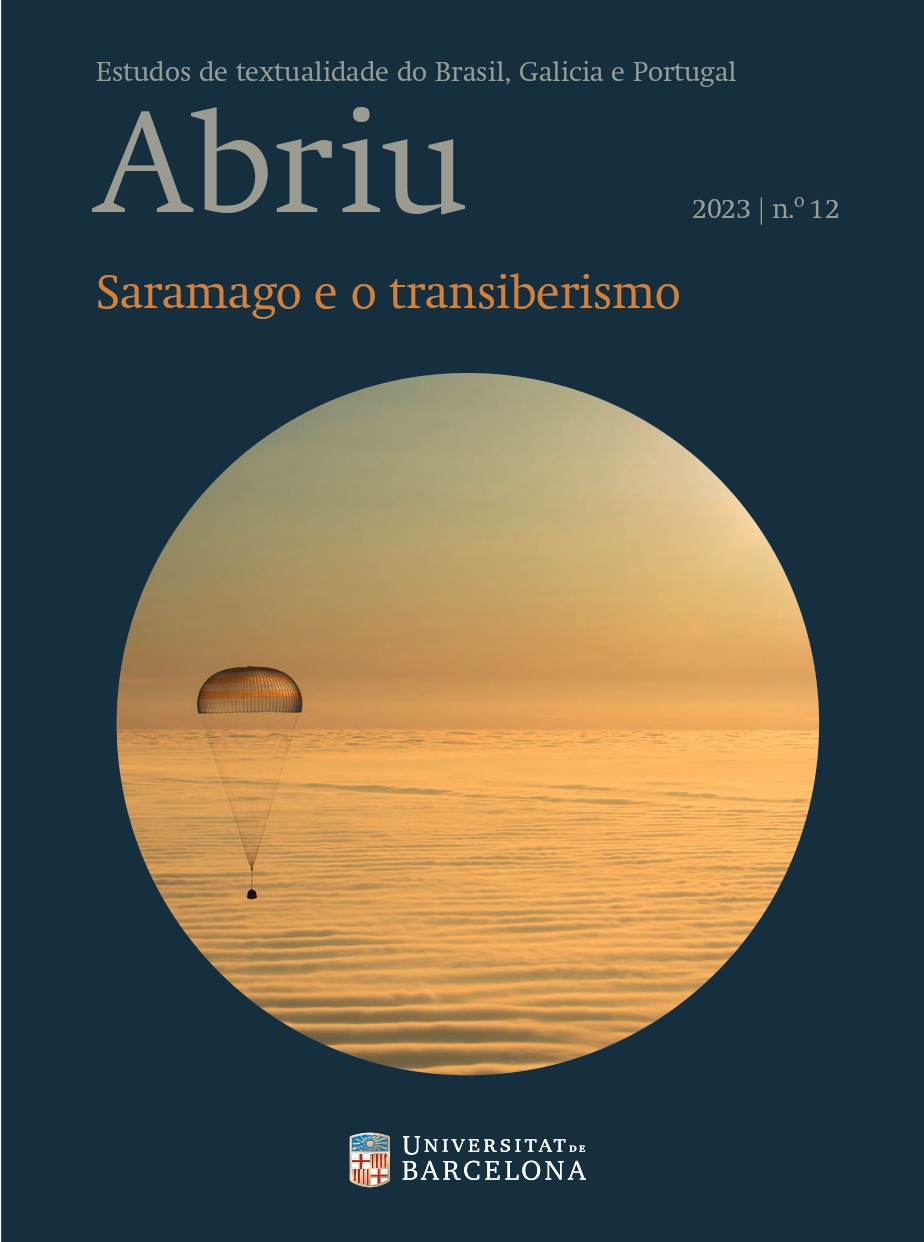1986 – The death year of the Portuguese political-economic freedom: critical notes surrounding the romance The Stone Raft
DOI:
https://doi.org/10.1344/abriu2023.12.3Keywords:
José Saramago, critical resentment, economic domination, European Union, RepresentationAbstract
José Saramago’s criticisms in his literary works and in his diaries are very clear about the harm brought about by the conservative political process restarted since the counter-revolution of November 25th, which culminated in Portugal’s entry into the European Economic Community (EEC), leading to the prolongation of the workers’ poverty level. During so many years living with this critical resentment, arising mainly from the economic dependence that Portugal has historically suffered, always under the “protection” of a stronger power, Saramago became more and more convinced of the criticism he has drawn in his 1986 novel, A Jangada de Pedra (The Stone Raft). He then preferred to make the raft sail through Atlantic waters than see it sink in front of the new impositions of Franco-German banks and financial centers. In this way, Saramago offers a new opportunity for Iberians to rethink and choose their partnerships and identities, reconstituting the ideas and values that unite individuals.
Downloads
Published
How to Cite
Issue
Section
License
Copyright (c) 2023 Daniel Vecchio

This work is licensed under a Creative Commons Attribution-NonCommercial-NoDerivatives 4.0 International License.
The Author retains ownership of the copyright of the article, unless the contrary is stated, and all rights not expressly granted in this agreement, including the non-exclusive right to reproduce, distribute, perform, and display the article in print or electronic form, and grants to Abriu: estudos de textualidade do Brasil, Galicia e Portugal the exclusive rights to first publication of the Article. The work will be available under a Creative Commons Attribution-Noncommercial-No Derivative Works license, by which the article must be credited to the Author and the Journal must be credited as first place of publication.


